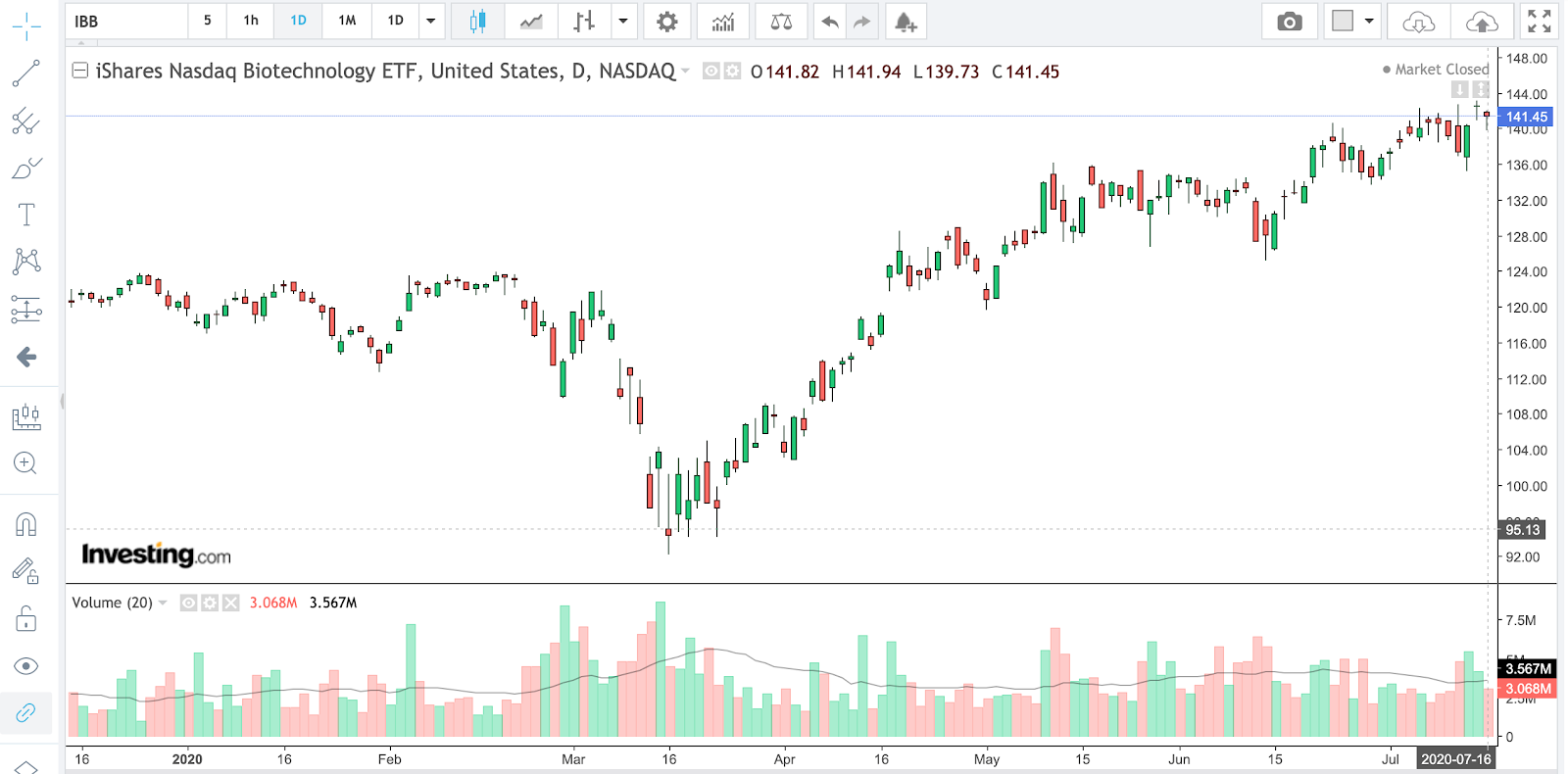Over the past several months healthcare has become a top priority for individuals and governments alike around the globe. Many now regard a potential drug, or a vaccine, as a fast-track to a 'normal' life. As a result, so far this year, shares of a large number of biotechnology and pharmaceutical, or biopharma, stocks have done quite well.
There is also a wide range of exchange-traded funds (ETFs) that allow market participants to invest in biopharma in a diversified manner. Today we'll first discuss the industry's general characteristics and then introduce an ETF that may deserve further due diligence.
The biopharma industry offers growth prospects
According to the US Food & Drug Administration (FDA), a drug patent lasts for 20 years. But about half of that time is, in general, spent developing the drug.
As the COVID-19 pandemic has shown, research and development is at the center of drug development. In the US, developing a new prescription medicine is likely to cost well over $2 billion. The global pharmaceutical industry's annual investment in R&D is around $150 billion a year.
Since March, investors have not hesitated to buy the shares of a range of biopharma companies that have joined the race for a cure against the novel coronavirus. Several of these firms include AstraZeneca (NYSE:AZN), Gilead Sciences (NASDAQ:GILD), GlaxoSmithKline (NYSE:GSK), Ibio (NYSE:IBIO), Inovio Pharmaceuticals (NASDAQ:INO), Moderna (NASDAQ:MRNA), Novavax (NASDAQ:NVAX), and Pfizer (NYSE:PFE). Their share prices have rallied every time there has been a headline suggesting a potential vaccine or drug might be around the corner.
Now, market participants are wondering if they are a little late to the party, or if these stocks could indeed go up any further. Seasoned investors realize that significant sums can be made, or lost, by betting on a potential cure. Therefore, many biopharma stocks are typically regarded as aggressive growth investments.
Investors who do not want to concentrate on a specific company alone may instead invest in an exchange-traded fund. An ETF typically tracks an index. As one cannot directly invest in an index, an exchange-traded fund enables market participants to gain exposure to companies in that index.
iShares Nasdaq Biotechnology ETF

-
Current Price: $141.45
-
52-week range: $92.15-$143.13
-
Dividend Yield: 0.27%
-
Expense Ratio: 0.47% per year, or $47 on a $10,000 investment.
Launched in 2001, the iShares Nasdaq Biotechnology ETF (NASDAQ:IBB) is the oldest and largest ETF. It is run by BlackRock (NYSE:BLK), the world's largest asset manager.
The fund tracks the NASDAQ Biotechnology Index, which contains securities of NASDAQ-listed companies classified as either biotechnology or pharmaceuticals that also meet other eligibility criteria.
IBB's five largest holdings are Amgen (NASDAQ:AMGN) Vertex Pharmaceuticals (NASDAQ:VRTX), Gilead Sciences (NASDAQ:GILD), Regeneron Pharmaceuticals (NASDAQ:REGN), and Illumina (NASDAQ:ILMN). They make up around 35% of the fund, which overall invests in 212 companies.
Year-to-date, IBB is up over 15%. In fact, on July 15, it hit an all-time high. Over the coming days, many biopharma companies will be reporting quarterly earnings. Given the recent increases in prices of individual shares, there may be some short-term profit-taking around the corner. A decline toward the $125 level is likely. This could provide potential IBB investors with a better entry point.
Its beta of 1.18 means IBB is more volatile than the broader market. This high beta is partly a reflection of the fact that biotech ETFs and biopharma stocks may have higher risk-return profiles than broader markets. Therefore, short-term traders may want to exercise caution as prices tend to be choppy.
Bottom Line
ETFs are one of the fastest-growing investment vehicles in the US, as well as several other countries. Within the biopharma industry, many funds could be appropriate for a wide range of long-term buy-and-hold investors with a high tolerance for short-term market fluctuations.
Other ETFs that you may want to research could include:
ARK Genomic Revolution ETF (NYSE:ARKG), Invesco Dynamic Biotechnology & Genome ETF (NYSE:PBE), KraneShares MSCI All China Health Care ETF (NYSE:KURE), SPDR® S&P Biotech ETF (NYSE:XBI), SPDR® S&P Pharmaceuticals ETF (NYSE:XPH), or VanEck Vectors Pharmaceutical ETF (NASDAQ:PPH). We plan to cover them in the coming months.
